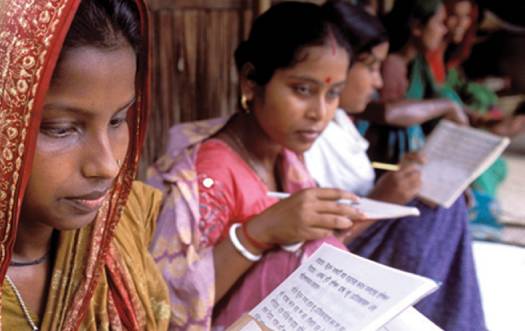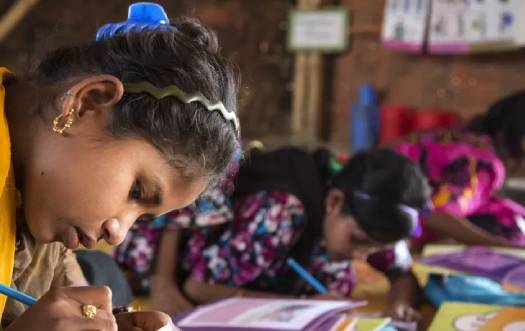Phone: +91-9453534383
Women's education plays a pivotal role in societal development and empowerment.
Women's education has been recognized globally as a cornerstone of progress and development. By ensuring that girls and women have access to quality education, societies can unlock significant benefits across various domains. Education empowers women by equipping them with knowledge, skills, and confidence to actively participate in economic, social, and political life. It breaks down barriers and stereotypes, fostering gender equality and promoting women's rights. Beyond personal empowerment, educated women contribute to healthier families and communities, as they are more likely to make informed decisions about health, nutrition, and family planning. Economically, women's education translates into increased workforce participation, higher incomes, and poverty reduction. Furthermore, educated women often play pivotal roles in community development, advocating for social change and driving progress. Efforts to enhance women's education involve improving access to schools, addressing socio-cultural barriers, providing scholarships, and creating supportive learning environments. Investing in women's education is not only a matter of justice and human rights but also a strategic imperative for sustainable development and inclusive growth in every society.
Women's education is widely acknowledged as a cornerstone of progress and development worldwide. By ensuring that girls and women have access to quality education, societies unlock numerous benefits across diverse domains. Education empowers women with essential knowledge, skills, and confidence to actively engage in economic, social, and political life. It plays a pivotal role in breaking down barriers and stereotypes, thereby fostering gender equality and promoting women's rights. Beyond personal empowerment, educated women significantly contribute to building healthier families and communities by making informed decisions about health, nutrition, and family planning. Economically, women's education translates into increased workforce participation, higher incomes, and poverty reduction. Moreover, educated women often play pivotal roles in community development, advocating for social change and driving progress. Efforts to enhance women's education involve improving access to schools, addressing socio-cultural barriers, providing scholarships, and creating supportive learning environments. Investing in women's education is not only a matter of justice and human rights but also a strategic imperative for sustainable development and inclusive growth in every society.


Certainly! Here are more points emphasizing the importance and benefits of women's education:
Women's education is of paramount importance for societal progress and transformation. It serves as a catalyst for empowering women with knowledge, skills, and opportunities that enable them to contribute meaningfully to their communities and beyond. Access to quality education equips women with the tools to break free from traditional roles and barriers, fostering their independence and self-reliance. Education not only enhances their economic prospects through better job opportunities and higher incomes but also equips them to make informed decisions about their health, family planning, and overall well-being. Educated women are more likely to participate in civic and political life, advocating for policies that promote gender equality and social justice. Moreover, they play crucial roles in nurturing the next generation, instilling values of education and equality in their children. By investing in women's education, societies can achieve sustainable development goals, reduce poverty, and build resilient communities where every individual has the opportunity to thrive. Therefore, ensuring universal access to education for girls and women is not just a matter of equity and human rights but a fundamental strategy for inclusive growth and prosperity worldwide.
Improving women's education is a pivotal strategy for advancing societies and fostering inclusive development on multiple fronts. Education empowers women with knowledge, skills, and opportunities that translate into broader economic growth and stability. Educated women are more likely to enter the workforce, start businesses, and contribute significantly to household incomes, thereby boosting overall economic productivity. Moreover, education enhances women's health literacy and access to healthcare services, leading to improved maternal and child health outcomes and reduced mortality rates.
Beyond economic and health benefits, women's education plays a crucial role in promoting gender equality by empowering women to challenge societal norms and stereotypes. Educated women are more likely to participate in decision-making processes, advocate for their rights, and lead initiatives for social change and community development. Political participation and leadership among women are also positively influenced by education, fostering more inclusive governance and policy-making.
Educational empowerment contributes to family stability as well, with educated women often making informed choices about family planning, leading to smaller and healthier families. This, in turn, supports children's education and overall well-being, creating a positive cycle of intergenerational impact. Additionally, women's education promotes environmental sustainability by raising awareness and advocating for sustainable practices within communities.